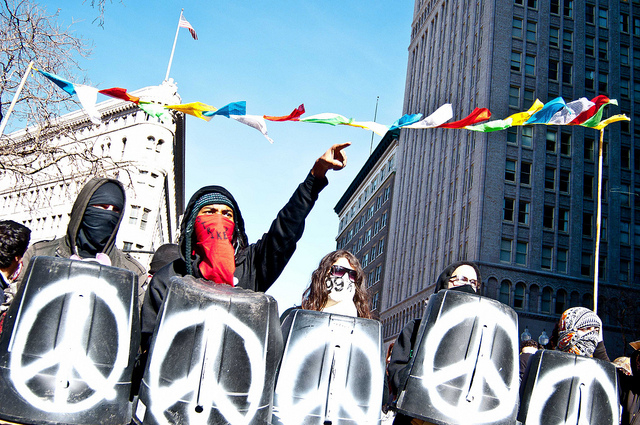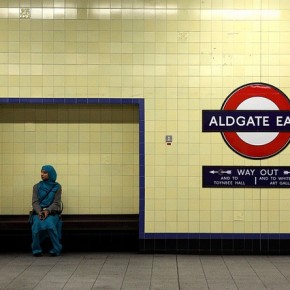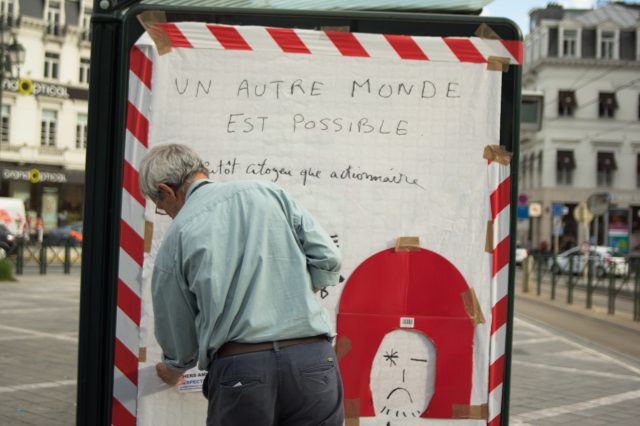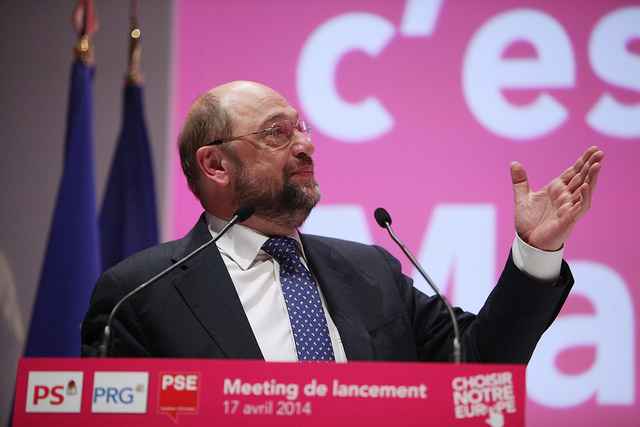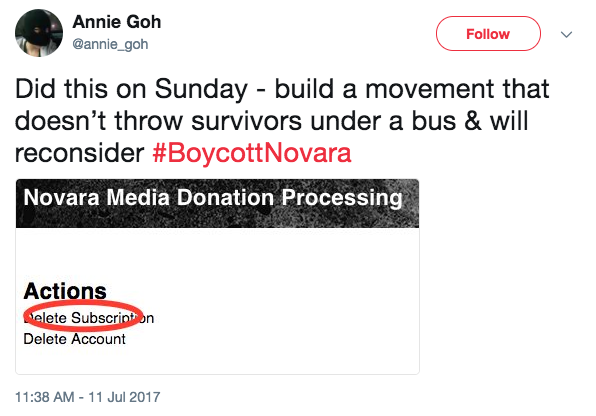In cities across the US, images of the Occupy Wall Street protests are filled with batons, tear gas and riot gear. These have become the symbols of state reaction. Scruffy anarchists tied in plastic bracelets corralled into buses. Women in tears from pepper spray. Bloody faces.
But most everyone targeted by police has escaped felonies and trials. Even those most seriously injured by police violence during OWS have reached legal settlements. That’s why Cecily McMillan, convicted May 5 of assaulting a cop during a protest in Manhattan’s Zuccotti Park in March 2012, changes everything.
As I’ve written before, McMillan’s defense is not only solid, as she claims she had no intention of striking a cop but instinctively kicked back her elbow when someone she didn’t know forcibly grabbed her breast from behind, but she did not receive a fair trial. The judge suppressed important defense evidence and the ability of her lawyers to communicate with supporters and the press. Even after the guilty verdict, the Guardian reported that jurors regretted their decision because they believed she should receive probation or community service, as they didn’t know during the trial that she faced up to seven years in jail. Had they known the severity, they might have reached a different conclusion.
There’s still a minute possibility that McMillan, a 25-year-old first time offender, may get a punishment that doesn’t involve prison at sentencing May 19. But the unabashed eagerness of the judge to secure a guilty verdict and the prosecutors’’ zealousness—she was offered a plea deal that involved probation only but still included a felony charge—indicates otherwise. And with that, one of OWS’ most well known advocates of non-violence will become the movement’s first real political prisoner.
The American government, whose politics are determined by the spending power of the corporations OWS believes yield too much control, has increased its scare tactics. What kind of message does this send to the rest of us? If I am, say, just photographing a demonstration, and am wrestled to the ground, causing my camera to swing around and hit a police officer, will my fate in an overcrowded upstate prison be sealed? This is exactly what the state wants us to think about when we want to go near any place where dissent against inequality and corporate greed are present.

McMillan also stands out because of her gender and the sexualized nature how she was attacked. In the first reverberating image of police violence in OWS was of a male police commander specifically targeting two women, doing nothing, to be pepper sprayed. During other OWS events, I personally witnessed an eagerness of male cops to single out women, using police procedure as a pretext for putting their hands all over them. She is one of the many who got into the crosshairs of a very rapacious police force.
Yet, McMillan, sadly, is also incredibly lucky. She is a white person in an overwhelmingly white movement, afforded lawyers and a robust support network eager to get her story into the mainstream press. Across this country, millions of young blacks and Latinos are swept up in police raids without proper legal support, often forced into plea deals even when they could otherwise profess their innocence. Our death penalty, which is disproportionally used against minorities, too often finds its victims being the innocent who are wrongly convicted. This stuff doesn’t trend on Twitter as much as it should.
So it’s ironic that McMillan was one of the original OWS organizers whose view of the police alienated many low-income activists of color. In those early days, McMillan voiced that the police were not the enemy and that they were potential working-class allies. For anyone coming from a black and Latino neighborhood, where civilian patrols resemble imperial occupation, to believe that a social justice movement could align with the cops showed a naïveté that could only come from blinding privilege. When OWS activists expressed shock at the violent police response to mild political protest, this only furthered the tension.
That’s not to say there weren’t OWS activists who didn’t want to confront the police. McMillan was a social democrat in a sea of anarchists who organized a movement so open that it brought loud mouths from the political fringes who gained undeserved media attention. But it won’t be any of them who’s going to have their lives upended, separated from friends and loved ones, caged in a dank cell, deprived of proper food and exposed to unchecked violence from both other inmates and guards. That fate, unless a judicial miracle intervenes, [On May 6, 9 out of 12 of McMillan’s jurors told Judge Ronald Zweibel she should do community service, not jail time] is going to fall on someone who once thought this system had some good in its core. So if this is the fate of a reformist, what does the state have in mind for anyone who wants to see any real kind of dramatic change or does dare to engage in the time-honored tradition of civil disobedience?
This painful time is also a time of renewed self-reflection for a movement, which although is in tatters, can be partly credited with realigning the national discussion about class inequality. It will be a time in which the organizing around McMillan’s sentencing can kick start new organizing. It is also a time of answering tough questions, such as: Why hasn’t the labor movement shown outrage about this, and what does New York City Mayor Bill de Blasio, whose political ascendance came with his support for OWS rhetoric, think about this miscarriage of justice? And other questions will be more tactical: How can a movement rebuild itself, re-amplify a collective voice and maintain discipline in the shadow of an increasingly violent state?
Photographs courtesy of Glenn Halog and Ann Harkness. Published under a Creative Commons license.
